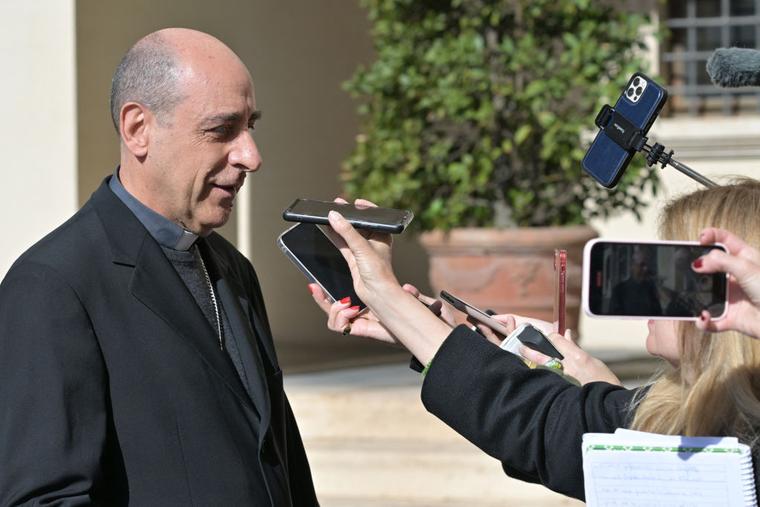- Feb 5, 2002
- 166,616
- 56,250
- Country
- United States
- Faith
- Catholic
- Marital Status
- Married
- Politics
- US-Others
EDITORIAL: The continuing confusion over the Vatican’s Dec. 18 document is recent evidence of this phenomenon.
The Catholic Church on March 7 marks the 750th anniversary of the death of one of its greatest thinkers and teachers, St. Thomas Aquinas.
One of Aquinas’ titles is the “Common Doctor,” so chosen because of his extraordinary gift for articulating and defending the common truths of our Catholic faith. This unity of faith is what binds together Catholics all over the world. In other words, the faith proclaimed in Ulaanbaatar, Mongolia, is, or should be, the same as it is in the United States.
But that crucial unity is threatened by the confusion caused in many quarters since the Dec. 18 release of Fiducia Supplicans. The controversial declaration, written by Dicastery for the Doctrine of the Faith’s prefect Cardinal Víctor Manuel Fernández and approved by Pope Francis, sets parameters for “non-liturgical” blessings of couples in “irregular” relationships. These include same-sex couples, civilly-divorced-and-remarried heterosexual couples, and couples who are unmarried and co-habitating.
The reception to Fiducia Supplicans has been anything but uniform. While some cardinals and bishops in the West have welcomed it, Church leaders in much of Africa and other parts of the world have flatly rejected it. What that means is that these blessings are happening in some places but not in others.
Continued below.

 www.ncregister.com
www.ncregister.com
The Catholic Church on March 7 marks the 750th anniversary of the death of one of its greatest thinkers and teachers, St. Thomas Aquinas.
One of Aquinas’ titles is the “Common Doctor,” so chosen because of his extraordinary gift for articulating and defending the common truths of our Catholic faith. This unity of faith is what binds together Catholics all over the world. In other words, the faith proclaimed in Ulaanbaatar, Mongolia, is, or should be, the same as it is in the United States.
But that crucial unity is threatened by the confusion caused in many quarters since the Dec. 18 release of Fiducia Supplicans. The controversial declaration, written by Dicastery for the Doctrine of the Faith’s prefect Cardinal Víctor Manuel Fernández and approved by Pope Francis, sets parameters for “non-liturgical” blessings of couples in “irregular” relationships. These include same-sex couples, civilly-divorced-and-remarried heterosexual couples, and couples who are unmarried and co-habitating.
The reception to Fiducia Supplicans has been anything but uniform. While some cardinals and bishops in the West have welcomed it, Church leaders in much of Africa and other parts of the world have flatly rejected it. What that means is that these blessings are happening in some places but not in others.
Continued below.

‘Fiducia Supplicans’: Unequivocal Leadership Needed to Manage Fallout
EDITORIAL: The continuing confusion over the Vatican’s Dec. 18 document is recent evidence of this phenomenon.
